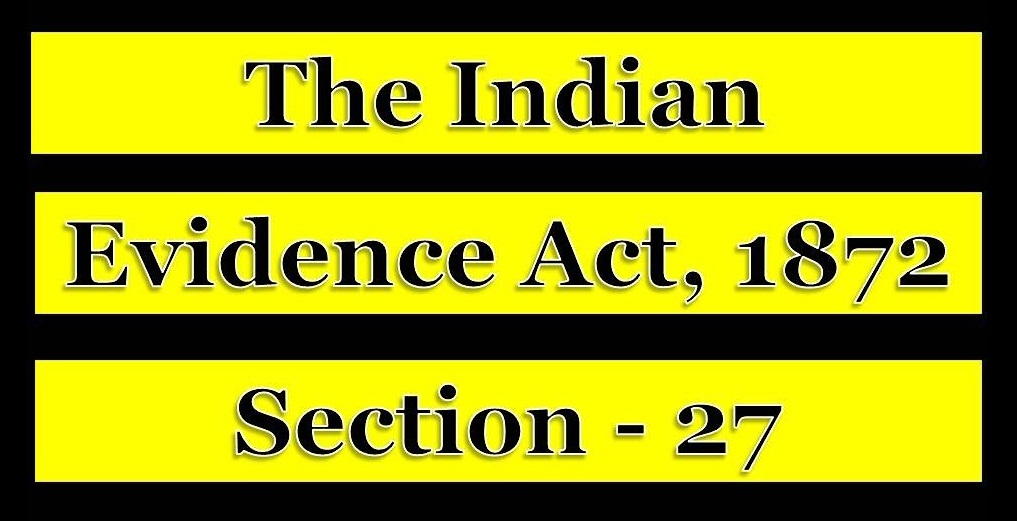November 9, 2023
Exploring Section 27 of the Indian Evidence Act

Introduction
- Section 27 of the Indian Evidence Act plays a pivotal role in the legal framework concerning the admission of confessions. It provides an exception to the general rule that confessions made in police custody without the presence of a magistrate are inadmissible in court. This section is based on the principle of confirmation by subsequent events.
The Provisions of Section 27
- Sections 25 and 26 of the Evidence Act establish safeguards against self-incrimination and potential abuse of power by police authorities. They render confessions made in police custody without the presence of a magistrate as inadmissible in a court of law.
- Section 27, however, carves out an exception. It allows for the admission of confessions that lead to the discovery of facts. The section states, “Provided that, when any fact is deposed to as discovered in consequence of information received from a person accused of any offence, in the custody of a police officer, so much of such information, whether it amounts to a confession or not, as relates distinctly to the fact thereby discovered, may be proved.”
- In simpler terms, if a confession made by a person in police custody leads to the revelation of a fact, it is considered admissible in court.
Understanding the Doctrine of Confirmation by Subsequent Events
- The underlying principle of Section 27 is the doctrine of confirmation by subsequent events. This doctrine asserts that every part of the statement made at the instance of the accused, while in police custody, must be corroborated by the subsequent discovery of evidence to be admissible in court.
Broad Interpretation of “Fact” in Section 27
- In the case of Asar Mohd. v. State of U.P, the Supreme Court expanded the interpretation of the term “fact” mentioned in Section 27. It clarified that this term is not restricted solely to physical objects, but also encompasses essential psychological or mental facts that may be directly relevant to the case.
Conclusion
- Section 27 of the Indian Evidence Act serves as a crucial exception in the admission of confessions, allowing for the consideration of statements made in police custody that lead to the discovery of facts. Understanding the nuances of this section is essential for a comprehensive grasp of evidentiary procedures in the Indian legal system.
Daily Gist : The Hindu/Indian Express : 30 Jan 2025
January 30, 2025
Gist of editorial : the Hindu/ Indian Express/20 Jan 2025
January 20, 2025
Daily the Hindu/ Indian Express Editorial Gist: 14 Jan 2025
January 14, 2025
